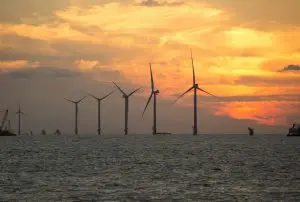What does the result of the Rwanda vote mean for Sunak’s ability to manage fractious Tories?
The recent vote on the Government’s Rwanda immigration plan has exposed Conservative division once more. The scale of division between centrally-minded MPs and those on the right of the Party will make it difficult for Sunak to deliver on his promise to ‘stop the boats’. At worst, this could risk collapsing the Government. At best, the process is likely to bode poorly for Conservative electoral prospects.
What was the result of the Second Reading Rwanda Bill vote?
On 12 December, the House of Commons voted on the Second Reading of the Safety of Rwanda (Asylum and Immigration) Bill. The Bill seeks to deliver on the Migration and Economic Development Partnership between the UK and Rwanda, which would allow the Government to send some asylum seekers to Rwanda.[1] With a working majority of 56, second readings are expected to go the way of the Government, and the Bill passed its second reading comfortably with a majority of 44.[2] However, 40 Conservative MPs abstained.[3] Many, but not all, of those who abstained did so because they believe the Bill does not go far enough to protect the Rwanda plan from legal challenges.[4]
There is further danger ahead for the Prime Minister, with many MPs claiming they voted for the Bill only because they expect it to be toughened up through amendments later in its passage through the Commons.[5] Mark Francois, a leading Conservative right wing MP and Chair of the European Research Group, warned that Conservative rebels could vote against the Bill at the third reading in the new year, unless amendments were made.[6] However, any attempt to toughen the Bill will come up against opposition from more moderate Conservative MPs such as the One Nation Group, with 100 members. Sir Robert Buckland, a member of the One Nation Group, said ‘As a group we feel thus far and no further’.[7] Given the public commitments that both moderate and right-wing Conservative groups have made, it will be difficult, perhaps even impossible, for Sunak to devise a solution to the Rwanda Plan that will satisfy both sides.
Furthermore, the headlines have been dominated by news of Conservative division, which is never good for the governing party ahead of a general election. Infighting over the Rwanda Plan will add to a narrative that the Conservative Government is divided and incompetent. While Boris Johnson managed to overcome division over Brexit in 2019 to win the General Election, the path forward for Sunak on the Rwanda Plan seems much less certain. If there are sufficient rebels at Third Reading, the Bill could be defeated. Sunak will hope to assure would-be right-wing rebels that the legislation will achieve their aims. Otherwise, he is likely to try to face down the right and force them to choose between supporting him and or risk collapsing the Government. If the vote looks close, he may well strengthen the Bill but this will irritate ‘moderates’ and certainly make its passage through the Lords more difficult. Either way, this episode is likely to shine light on divisions within the party in the lead up to the General Election, which will inevitably hurt the Conservatives’ performance.
When is the next stage of the Rwanda Bill?
The Safety of Rwanda (Asylum and Immigration) Bill passed its Second Reading on 12 December. A date for its Committee Stage is yet to be announced.
Details of the Bill and its progress can be viewed here.
[1] Home Office, Bill to make clear Rwanda is a safe country and stop the boats, 6 December 2023, link
[2] UK Parliament, Division 27: Safety of Rwanda (Asylum and Immigration) Bill¸ 12 December 2023, link
[3] Ibid
[4] Institute for Government, Safety of Rwanda Bill: What happens next in parliament, 14 December 2023, link
[5] Ibid
[6] Financial Times, Rishi Sunak secures win in Rwanda asylum vote, 12 December 2023, link
[7] Ibid




